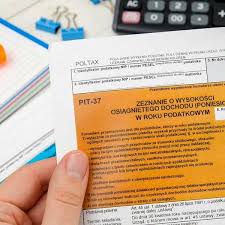What is a PIT declaration and its importance for Ukrainians in Poland
For Ukrainians working in Poland, understanding the taxation system and filing a PIT declaration correctly is a critical aspect of legal stay and work in the country. The PIT (Personal Income Tax) declaration is an annual income statement that is required to be filed by all persons receiving income in Poland, including foreigners. The correct and timely submission of this declaration not only ensures the fulfillment of tax obligations, but may also have a positive impact on future decisions on the extension of a residence or work permit in Poland. That is why many Ukrainians seek legal advice in order to conduct a legal analysis of the situation and avoid possible mistakes.
The main aspects of the PIT declaration's significance for Ukrainians:
- Fulfillment of tax obligations to the Polish state
- Possibility of obtaining tax deductions and benefits
- Confirmation of legal income for migration authorities
- The basis for future financial transactions in Poland
Legal analysis of the documents at the initial stage will help determine which PIT forms need to be filled out in your particular case and which documents need to be prepared for the correct filling of the declaration.
Types of PIT declarations and peculiarities of their completion for foreigners
There are several types of PIT declarations in the Polish tax system, each of which is intended for different categories of taxpayers and types of income. For Ukrainians working in Poland, it is important to correctly determine which PIT form to fill out. A lawyer in Poland can conduct a legal analysis of the situation and help you determine which PIT form best suits your circumstances.
The main types of PIT declarations relevant for Ukrainians are:
PIT-37 - for persons receiving income from employment
PIT-36 - for entrepreneurs and persons receiving income from abroad
PIT-28 - for persons applying the simplified taxation system
Question
Do I have to file a PIT return if I worked in Poland for only part of the year?
Answer
Yes, even if you worked in Poland for only a part of the year, you are obliged to file a PIT return. In this case, you declare the income earned during the period of your work in Poland. Consulting a lawyer will help you to correctly calculate your taxable income and determine what tax benefits you can receive. An online lawyer can provide detailed information on the specifics of filling out the declaration in such cases and help you avoid common mistakes.
Each type of PIT declaration has its own specifics and requirements for supporting documents. A legal opinion from a lawyer will help you understand what nuances you need to consider in your particular case.
Documents required for filing a PIT declaration
Preparing the right set of documents is a key step in the process of filing a PIT return. An incomplete or incorrectly prepared package of documents can lead to delays in processing the declaration or even to tax penalties. That is why many Ukrainians working in Poland apply for the service of a lawyer's review of documents to make sure that they are properly executed.
The standard list of documents for filing a PIT declaration:
- Information on income from the employer (PIT-11)
- Documents confirming additional expenses (e.g., medical treatment)
- Documents confirming eligibility for tax credits
- Information about the bank account for the refund of overpaid tax
It is important to remember that some documents may require translation into Polish. A lawyer in Warsaw can help not only with the verification of documents, but also with their correct translation, if necessary.
The procedure for filing a PIT declaration
The process of filing a PIT declaration may seem complicated, especially for those who are new to the Polish tax system. Filling in the forms correctly and submitting the declaration on time is critical to avoid possible sanctions. Legal analysis of documents prior to submission can significantly increase the chances of smooth acceptance of the declaration by the tax authorities.
The main stages of the PIT filing procedure are:
- Collection of necessary documents and information on income
- Selecting the appropriate PIT form
- Filling out the declaration
- Checking the correctness of filling
- Submitting the declaration to the tax authority
It is important to remember that the PIT declaration can be submitted both electronically and in paper form. An online lawyer can provide detailed advice on the filing procedure and help you choose the most convenient way for you.
Deadlines for filing the declaration and possible consequences of missing the deadlines
Meeting the deadlines for filing the PIT return is critical to avoid possible sanctions from the Polish tax authorities. Usually, the PIT return must be submitted by the end of April of the year following the reporting year. Written advice from a lawyer can help you understand which deadlines are relevant in your particular case and what to do if you miss the deadline.
Possible consequences of missing the deadline for submitting a PIT:
- Financial sanctions (fines)
- Penalties for late payment of tax
- Problems with extending your work or residence permit in Poland
- Additional inspections by the tax authorities
In case of missing the deadline for filing a tax return, it is important to remedy the situation as soon as possible. A legal opinion from a lawyer will help you assess the possible consequences and develop a strategy to minimize the negative effects.
Tax benefits and deductions for foreigners in Poland
The Polish tax system provides for a number of benefits and deductions that may be available to foreigners, including Ukrainians, working in Poland. Proper use of these opportunities can significantly reduce your tax burden. A legal analysis of your documents will help you determine which benefits and deductions you are entitled to.
Examples of tax benefits and deductions:
Child tax credit
Deductions for charity
Benefits for people who work creatively
Deduction of medical expenses
Question
Can Ukrainians working in Poland receive a tax benefit for their children who stayed in Ukraine?
Answer
Yes, Ukrainians working in Poland may be eligible for a child tax credit even if their children remain in Ukraine. However, a number of conditions must be met and relevant documents must be provided. A legal consultation will help you to properly prepare the necessary documents and maximize the use of tax benefits. A legal analysis of the situation will help determine whether you meet all the necessary criteria to receive this benefit.
It is important to understand that incorrect application of tax benefits can lead to problems with the tax authorities. A legal analysis of the situation will help you avoid such risks.
Submitting a PIT declaration for Ukrainians working in Poland is an important aspect of legal stay and work in the country. This process requires an understanding of the Polish tax system, attention to detail, and careful preparation of documents. From choosing the right PIT form to utilizing all available tax benefits, each stage can have a significant impact on your financial situation and legal status in Poland. That is why professional legal support often becomes a key factor in the successful submission of the declaration and optimization of the tax burden. Legal analysis of the situation, legal analysis of documents, and legal advice at every stage can help you avoid mistakes, maximize the use of available benefits, and ensure compliance with all requirements of Polish tax law. If you are planning to file a PIT return in Poland or have already encountered difficulties in this process, we recommend that you contact the legal marketplace KONSULTANT. Our experienced lawyers, who specialize in tax law and have practical experience in foreigners' affairs in Poland, will provide you with professional assistance at every stage of the process. From analyzing your tax situation to filling out and submitting a tax return, entrust your business to the professionals at KONSULTANT and ensure peace of mind and confidence in the correctness of your tax obligations in Poland.



























